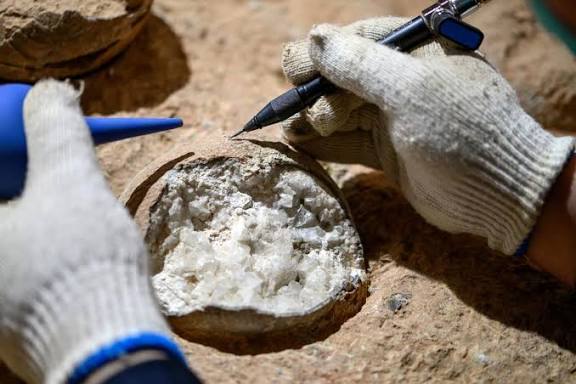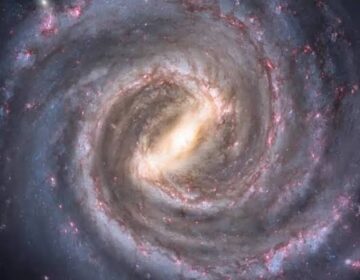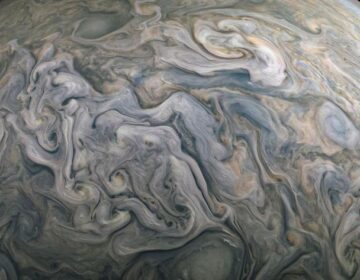Scientists dated dinosaur eggs directly for the first time, placing them at 85 million years old. The findings link climate cooling to evolutionary pressures that may have doomed some species.
During the Cretaceous period, Earth experienced intense volcanic eruptions, widespread loss of oceanic oxygen, and several devastating mass extinctions. Fossils from this turbulent era still survive today, offering scientists valuable insights into the climate conditions that once shaped different regions of the planet.
Researchers in China recently examined one such set of fossils: dinosaur eggs uncovered at the Qinglongshan site in the Yunyang Basin of central China. For the first time, scientists have successfully determined the age of dinosaur eggs using carbonate uranium-lead (U-Pb) dating.
“We show that these dinosaur eggs were deposited roughly 85 million years ago, in the Late Cretaceous period,” said corresponding author Dr. Bi Zhao, a researcher at the Hubei Institute of Geosciences. “We provide the first robust chronological constraints for these fossils, resolving long-standing uncertainties about their age.”
Qinglongshan has been designated as China’s first national reserve dedicated to dinosaur egg fossils. More than 3,000 eggs have been discovered there across three separate sites. Many of the fossils are preserved within breccias, breccia-siltstone combinations, and fine sandstones. Most remain undisturbed in their original positions and show only minor deformation.
The majority are thought to belong to Placoolithus tumiaolingensis, a member of the Dendroolithidae family, which is distinguished by eggshells with unusually porous structures. The sample used in this study was a calcite-filled egg taken from a cluster of 28 eggs set within breccia-rich siltstone.







